Madman's notes
About Me

- Name: Roger The Blogger
- Location: United Kingdom
I’ve put some fragments of my writing into this blog. I’m currently working on a novel, which is called ‘Mad dogs and Irishmen’© and consists of different types of characters, many of which live in their own private world of madness. Most of them are real people. From a young age I wanted to experience different things in life before the world left me, and I often put myself into bizarre situations, so I could taste life in all its glories and mysteries…
Wednesday, October 18, 2006
Wednesday, October 04, 2006
Congo
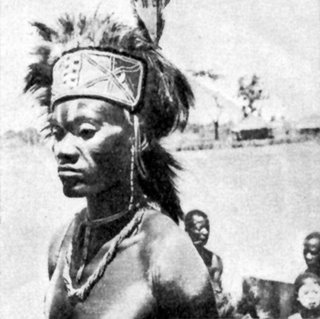 The kitchen porter or pot cleaner, another regular about 40 years old, was on aviation fuel and permanently out of it. His name was Tommy Kileen, and his brother Gerard had been in the Niemba ambush on the 8th of November 1960, and had been killed and eaten by Baluba tribesmen. Tommy looked quite mad and would pretend he was eating his brother when he was in the kitchen, and would get a knife and fork and go:
The kitchen porter or pot cleaner, another regular about 40 years old, was on aviation fuel and permanently out of it. His name was Tommy Kileen, and his brother Gerard had been in the Niemba ambush on the 8th of November 1960, and had been killed and eaten by Baluba tribesmen. Tommy looked quite mad and would pretend he was eating his brother when he was in the kitchen, and would get a knife and fork and go:“Yum-yum, very nice, very tasty, yum-yum”
He would then go to the soup, and use a ladle, and drink the soup saying that they made soup from his brother. He would often look at me to get reaction, as I was the youngest in the camp and would then start again:
“Brother very nice, yum-yum”.
At the time a patrol led by lieutenant Kevin Gleeson, aged about 22 years, were going through the jungle when they came across a tree blocking their path. It was a small patrol consisting of one officer, one sergeant, two corporals and six men. They stopped and proceeded to remove the tree. To be fair, nothing had happened up to this time, but the moment they saw the tree they should have been suspicious and suspected an ambush. They should have deployed, or better still done a handbrake turn and legged it as fast as possible.
Within seconds they were surrounded by hundreds of fearsome Baluba tribesmen, out of their heads, with spears and bow and arrows. The patrol tried to fight them off, but some of them kept coming towards them even after being hit by bullets. The ambush was unexpected; they were off guard and were hugely outnumbered. They had little firepower: Lee Enfield rifles, Gustaf sub-machine guns with short range, and a Bren gun.
Their fate was sealed, and it was only a matter of time before they were overcome. A young cavalry trooper from the 2nd Motor Squadron, Anthony Brown from Fatima Mansions in Rialto, Dublin, tried to protect his comrades by giving them covering fire to allow them escape. He put his life on the line to protect them. The tribesmen drank his blood because of his bravery and ate him. Anthony Brown was a small, slight guy who used peel the potatoes in the kitchen of Portobello Barracks, Dublin, before he left for the Congo. Himself and 8 others were all slaughtered and only one escaped. His name was '57 Kenny' – he was found a few days later in the bush by another patrol, and he ran towards them, and saluted and shouted: “57 Kenny, sir!”
He had a very bad time when he returned to Ireland, and was branded as a coward by the media. He lived in Cabra West, the same housing estate that ‘Rip it up Rip’ came from, and had serious psychological problems for the rest of his life.
The coffins came back to Dublin on a grey November day in 1960 and thousands of people lined the streets. It was a sad and sombre occasion with the Army Number One band from the same barracks playing the mournful and haunting ‘ Dead march’ from Handel’s ‘Saul’ to the beat of the muffled drums.
Sunday, October 01, 2006
Saturday, September 30, 2006
The green eye of the yellow God...(2)
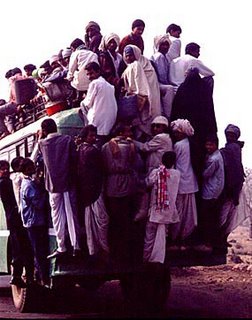 We crossed the bridge into Birgang, Nepal, and boarded a bus with a wooden body, which was travelling to Kathmandu. The scenery was very different to India with lots of green vegetation and with mountains all around. At times we were above clouds on small mountain tracks thousands of feet up it. When we met another bus coming in the opposite direction we had to pull into a little lay by cut out from the rocks, and the drivers, who were all Sikhs, would greet each other and chat for a few minutes and then hug each other before proceeding on the wall of death. Their behaviour wasn’t surprising due to the narrowness and state of these dirt tracks and sometimes when we descended below cloud you could see buses that hadn’t finished their journey and had fallen down the mountains. Some were lodged half way down and stuck in trees and stumps that were sticking out of the mountainside. This journey wasn’t for the faint hearted and the bus should have carried a government health warning.Suddenly a huge shower of torrential rain started and the driver pulled over. All of a sudden about fifteen passengers with their luggage climbed down from the roof and squeezed into the already crammed bus, leaving me plastered to the window for the next five hours. I’ll probably have to be poured out of the bus by the time we get to Kathmandu.
We crossed the bridge into Birgang, Nepal, and boarded a bus with a wooden body, which was travelling to Kathmandu. The scenery was very different to India with lots of green vegetation and with mountains all around. At times we were above clouds on small mountain tracks thousands of feet up it. When we met another bus coming in the opposite direction we had to pull into a little lay by cut out from the rocks, and the drivers, who were all Sikhs, would greet each other and chat for a few minutes and then hug each other before proceeding on the wall of death. Their behaviour wasn’t surprising due to the narrowness and state of these dirt tracks and sometimes when we descended below cloud you could see buses that hadn’t finished their journey and had fallen down the mountains. Some were lodged half way down and stuck in trees and stumps that were sticking out of the mountainside. This journey wasn’t for the faint hearted and the bus should have carried a government health warning.Suddenly a huge shower of torrential rain started and the driver pulled over. All of a sudden about fifteen passengers with their luggage climbed down from the roof and squeezed into the already crammed bus, leaving me plastered to the window for the next five hours. I’ll probably have to be poured out of the bus by the time we get to Kathmandu.After many hours we descended into the valley of Kathmandu and I knew we were close to our target. Just as well as my breathing had almost stopped and very soon I would probably need a life support machine, or at least the kiss of life.
Friday, September 29, 2006
The green eye of the yellow God...
 At last we rolled into the city of Kathmandu, and I peeled myself from the window, and staggered out of the bus. I became ecstatic when I overdosed on oxygen, and the three of us quickly found lodgings in a cheap, dingy hotel with no name in Dilli Bazaar near Dunbar Square, which seemed to be the city centre. This was where it was at and I loved it. It reminded me of a Wild West cowboy town except there were no cowboys carrying guns and no high noons, but lots of hippies armed with chillums, some of whom looked decidedly under the weather, and were weighed down with beads. I could see that this place was the centre of knowledge and I didn’t fit in, as I’d forgotten to bring my beads. Most of them had a message and many of the gurus, who were long term residents, had found what they were looking for in plentiful supply, which helped put them in touch with themselves, so they could spend more time looking for their inner selves, whereas I didn’t even know where I was going, never mind where I was coming from, and had no idea where I wanted to be or not to be, and the reality was that I hadn’t arrived yet and was unable to get in touch with myself, never mind answer the question.
At last we rolled into the city of Kathmandu, and I peeled myself from the window, and staggered out of the bus. I became ecstatic when I overdosed on oxygen, and the three of us quickly found lodgings in a cheap, dingy hotel with no name in Dilli Bazaar near Dunbar Square, which seemed to be the city centre. This was where it was at and I loved it. It reminded me of a Wild West cowboy town except there were no cowboys carrying guns and no high noons, but lots of hippies armed with chillums, some of whom looked decidedly under the weather, and were weighed down with beads. I could see that this place was the centre of knowledge and I didn’t fit in, as I’d forgotten to bring my beads. Most of them had a message and many of the gurus, who were long term residents, had found what they were looking for in plentiful supply, which helped put them in touch with themselves, so they could spend more time looking for their inner selves, whereas I didn’t even know where I was going, never mind where I was coming from, and had no idea where I wanted to be or not to be, and the reality was that I hadn’t arrived yet and was unable to get in touch with myself, never mind answer the question.I noticed a strange smell in the air, which was definitely not gunpowder and was interfering with my oxygen supply, which I’d been deprived of during the nine-hour trek across the mountains. I started to feel a bit strange and woozy, and - as I wobbled around the square - the buildings got bigger and bigger and the mountains got smaller and smaller until I ended up looking down on the mountains and the buildings were looking up at me, as I stood beside the Sun holding my water bottle in my hand.
Purple haze was in my brain,
Lately things don’t seem the same,
Kiss the sky
Actin’ funny but I don’t know why
‘Scuse me while I ...
Thursday, September 28, 2006
Wednesday, September 27, 2006
Gone to the dogs (part 3)
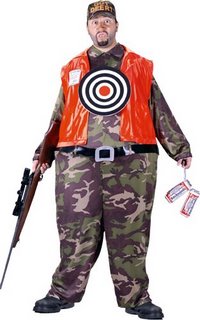 I had stayed on the other side of the city the previous night, as I’d met this beauty from Clonskeagh on the Southside of Dublin, and she had invited me to stay the night /.../. Due to the nature of my stay I had little sleep and had to race across the city, a ten-mile journey during the morning rush hour, in order to attend this stupid meeting. I just had time to change into uniform and head for the Director’s office.
I had stayed on the other side of the city the previous night, as I’d met this beauty from Clonskeagh on the Southside of Dublin, and she had invited me to stay the night /.../. Due to the nature of my stay I had little sleep and had to race across the city, a ten-mile journey during the morning rush hour, in order to attend this stupid meeting. I just had time to change into uniform and head for the Director’s office.Roland Rooney, myself and the Mess Corporal were present and had to do with uncomfortable wooden chairs, while the six stone Director sat on his comfortable armchair at the top of the room. The meeting got off to a bad start, when 26-stone Roland’s chair collapsed under him and the Mess Corporal had to summon assistance to raise the Major off the floor. A few sturdy soldiers were enlisted for help, and preceeded to lift my colleague, who was gasping for breath, and they eventually re-seated him on a heavy-duty chair, which was taken from one of the other offices.
Some of the other officers and senior NCOs came to the door to see what happened after they had heard the big bang from the Director of Artillery’s office, and they could appreciate that getting Rooney of the floor was no joke. Two big soldiers stayed behind as a precaution in case the new chair didn’t handle the job, so they could swiftly grab the Major before he hit the floor again.
At last all was well and the meeting proceeded.
The Director was called ‘The Nipper Walshe’ and he was a small, thin, waspish tyrant who was disliked by most officers including his own peers. He was a well know nasty who was regarded with scorn, and very few took him seriously.
During the meeting he went into a long boring monologue, which sent me into a trance, and eventually I fell into a deep sleep and fell off the chair hitting the floor. I’m not sure if I hit my head, but I heard ‘The Nipper’ screaming at me, as I woke up, and saw that the Corporal was trying hard not to laugh. The two soldiers were embarrassed seeing an officer in this position and didn’t know what to do. ‘The Nipper’ was in a rage and his ratty face was turning purple insulted that a junior officer didn’t find him interesting and wasn’t overawed just because of his rank. There was a dead silence from my audit partners, and he threatened me, and made me stand up for the rest of his boring meeting. I almost fell asleep again standing up, but caught myself before I fell.
I never heard anything about the incident and I’m sure my Regimental Commander would have laughed at him, as he would know better than anyone that ‘The Nipper’ would bore an army to death.
Tuesday, September 26, 2006
On the border
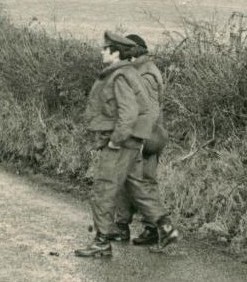 The soldiers and myself had a good relationship, and we knew that we could depend on each other. My sergeant was my link to the men and he acted as my advisor. We trusted each other and had an easy fluid relationship between us. He was a muscular, stocky guy with a nice, bright, open, friendly face, and had a good sense of humour. He was easy going, efficient in a calm way, and a good organiser. He had natural leadership qualities and had no problems controlling the men, as they respected him.We shared some musical tastes, and he gave me his Dean Martin’s tapes. He was a dedicated fan of Dino, so I think I’ll call him Dino. His favorite tune was ‘Little Ole Wine Drinker Me’:
The soldiers and myself had a good relationship, and we knew that we could depend on each other. My sergeant was my link to the men and he acted as my advisor. We trusted each other and had an easy fluid relationship between us. He was a muscular, stocky guy with a nice, bright, open, friendly face, and had a good sense of humour. He was easy going, efficient in a calm way, and a good organiser. He had natural leadership qualities and had no problems controlling the men, as they respected him.We shared some musical tastes, and he gave me his Dean Martin’s tapes. He was a dedicated fan of Dino, so I think I’ll call him Dino. His favorite tune was ‘Little Ole Wine Drinker Me’:I matched the man behind the bar for the jukebox
And the music takes me back to
He asked who's the fool in the corner crying
I say a little ole wine drinker me...
Dino would have joined the army as a recruit and after six months basic training be posted to a unit of his choice, which in his case was Infantry.During our stay on the border we travelled to a border crossing at Aughnacloy on the Monaghan border about twelve miles from Armagh, which is known as ‘bandit country’, where the customs post had been blown up. The British Army were on the other side. Myself and the British officer walked towards each other to where the border was. This can be recognised by the change and difference in the road surface. His troops were about one hundred metres in the background and mine were about the same. Both of us were about one metre apart with the line in the centre. We discussed what happened and where the bombers might be. We then saluted each other and went back to our soldiers.If you can imagine a foreign army standing on the ground that is part of the one Island, it feels like someone has broken into your house.
Monday, September 25, 2006
Provos
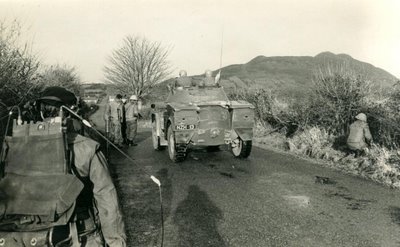
In January 1972 I got a phone call from the Chief Superintendent of the area. He said there was shooting going on between the ‘Provos’ (IRA) and the British Army, and would we assist them. I agreed and we made an R.V. (rendezvous) at Dungooley Cross on the County Louth – Armagh border. I got my Sergeant to organise a patrol and then went back to the Officers Mess and knocked on the boss's bedroom door. He had just come back from Dublin after a long weekend.
“Listen Sean, I’m not here. I’m still in Dublin. I haven’t got back yet as far as your concerned. You never saw me”.
“No problem, Sir”.
“You deal with it yourself Sean, whatever way you think fit. I have every confidence in you”.
“O.K. Sir, good bye”.
“Thanks a million Sean. Good Luck”.
He was a Commandant (Major) and it reminded me of Major Major in
Catch 22. “Sergeant, when I’m here I’m not here, and when I’m not here I’m here.”
We headed off at high speed in Land Rovers with the Panhard Armoured car in the rear. When we got near the area there was a group of uniformed policemen standing on the corner. An older policeman said “Be careful lads, they don’t care who they shoot”.
We heard a lot of shooting going on and we went down a narrow road towards the border, and met up with the Chief Super and Detective Sergeant Myles Hawkshaw, Special Branch. The Branch were armed with Israeli Uzi sub machine guns and they showed us, where the’Provos’ were, and asked us to stop them.
A few minutes later things went quiet. My men were deployed and we saw a white Ford Corsair, coming towards us. When the car was about 100 metres away, I noticed that the Special Branch had disappeared and were hiding behind the bushes. We had the road blocked with the Panhard, which had twin browning machine guns with a delivery of 1,500 rounds (7.62 mm) per minute. It also carried a Brandt 60 mm. Mortar. We had several GPMG’s (General purpose machine guns) 7.62 mm.
They stopped when they came to us and got out of the car with their hands up. There were four of them, two of them were well known.
The branch appeared and Hawkshaw said to the driver
“Have you got your driving licence?”
Provo: “Would you go and fuck off “.
The Branch then searched the car and found nothing. Eventually we headed back to base.
A few months later they appeared in the ‘Special Criminal Court’ Green Street, Dublin, which had been established for terrorist offences and had 3 High Court judges and no jury.
The police and the Branch had a meeting before the Court in order to organise their stories.
for sauternes , a Polish girl with mental problems
Saturday, September 23, 2006
Annual Retreat in Manresa House
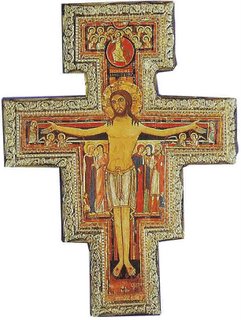 I /.../joined the Legion of Mary voluntary in order to sell religious newspapers outside the church, and kept a large percentage of the takings to enrich my lifestyle and fund my hobbies and habits. I sold flags from boxes around the city to save the Irish language, which I tried to destroy, and became quite skilled at removing money from the boxes, without it being noticed. I’m sure the language suffered because of this.The cash flow gave me some freedom, and when the class went on the Annual Retreat to Manresa House in Clontarf it covered the cost of cigarettes, and when the three-day retreat finished, we visited 'Cafalloas' ice cream parlour in O’Connell Street, Dublin’s main street, with my willing friends in order to chat up the more mature school girls, who also congregated in this hot spot.
I /.../joined the Legion of Mary voluntary in order to sell religious newspapers outside the church, and kept a large percentage of the takings to enrich my lifestyle and fund my hobbies and habits. I sold flags from boxes around the city to save the Irish language, which I tried to destroy, and became quite skilled at removing money from the boxes, without it being noticed. I’m sure the language suffered because of this.The cash flow gave me some freedom, and when the class went on the Annual Retreat to Manresa House in Clontarf it covered the cost of cigarettes, and when the three-day retreat finished, we visited 'Cafalloas' ice cream parlour in O’Connell Street, Dublin’s main street, with my willing friends in order to chat up the more mature school girls, who also congregated in this hot spot.The Retreats were run by the Jesuits and during one of lectures the priest got excited and told us we were all going to burn in hell as ‘we were the young ones’, but we weren’t too worried about this as we knew we were going to live forever.
This was the beginning of the era of Cliff Richard with the big hit ‘The young ones’:
Darling we’re the young ones
And the young ones
Shouldn’t be afraid
To give love
While the flame is strong
Cause we may not be the young ones
Very long...
The priest thought the world was going to pieces and we were losing it, and believed this song was corrupting us. The Jesuits didn’t realise that we didn’t need help, as we were corrupt before the song existed.
Friday, September 22, 2006
Gone to the dogs (part 2)
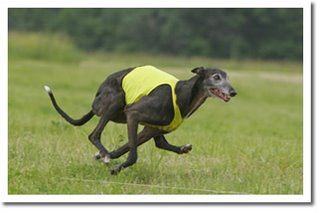 The Major is busy studying the form on the papers spread over the table and marking the different tips and information with a biro. He’s obviously planning a come back. There’s a lot more to backing a dog than you think. The preparation, the study, the calculations, working out the odds and studying the picture as a whole. It’s a fascinating subject, and you have to take all the variables and work out the result before you take the plunge. This is not a game for the nervous or the unitated. It’s a full time business, which takes huge commitment, and only men with iron nerve need apply.
The Major is busy studying the form on the papers spread over the table and marking the different tips and information with a biro. He’s obviously planning a come back. There’s a lot more to backing a dog than you think. The preparation, the study, the calculations, working out the odds and studying the picture as a whole. It’s a fascinating subject, and you have to take all the variables and work out the result before you take the plunge. This is not a game for the nervous or the unitated. It’s a full time business, which takes huge commitment, and only men with iron nerve need apply.The Major starts to jump up and down with excitement and keeps shouting:
“I’ve got it. I’ve got it”
“What?”
“’Take A Chance’ is running at Harolds Cross tonight and he’ll walk it. He’s son of ‘Big Mac’ and ‘Lady Jane’, and they’re related to ‘Fair Game’ and ‘The Irish Rover’. With a combination like that you can’t lose”
I think I might stick to ‘Winner Takes All’, and cover him for a few races and try a get a return, or maybe put a cross multiple bet on ‘Take A Chance’ and ‘Dirty Harry’ as an outsider, as he seems like a cute bastard and knows how to deal with the opposition. Screw them on the corners when they’re off balance and go for it. It’s obvious that ‘Dirty Harry’s’ methods work and he probably copied them from ‘Barton Senema’ and ‘Roykill Bootmacker’ who started the fashion.
At this stage the Major is trembling with excitement and shaking, as he picks up the phone and rings his beloved Rebecca who he’s been engaged to for fifteen years.
“Hallo, my Darling. How are we fixed for tonight?”
………………..
“Could you please pick me up this evening and drop me off at Harold’s Cross – it’s important?”
………………..
“No, Rebecca, it’s not like that. You know I’m not using you. I’m doing this for both of us, so we can have a future together and have money for our wedding, so that we can always be together”
………………..
“OK, Darling, I know. This will be the last time, I promise. I won’t disappoint you. We’ll celebrate tonight after the race, and we’ll go into town tomorrow, and I’ll buy you the biggest wedding ring in the shop, and then we’ll organize our wedding”.
Thursday, September 21, 2006
Gone to the dogs (part 1)
 Audits are long drawn out affairs and the first morning I head for the office to join the Major Roland Rooney who’s looking rather sad. I’ve never had much contact with him before, but it was well known that he was a very focused man. His one and only interest in life being dogs, dogs and more dogs. He had nothing except his army uniform, one extra collar for his shirt and an old civilian jacket, and he lived in the barracks, and got lifts to the dog tracks from his suitor Rebecca and anyone who was going his way. He had no other vices – he didn’t drink or smoke, as he was too focused and besides he couldn’t afford them.
Audits are long drawn out affairs and the first morning I head for the office to join the Major Roland Rooney who’s looking rather sad. I’ve never had much contact with him before, but it was well known that he was a very focused man. His one and only interest in life being dogs, dogs and more dogs. He had nothing except his army uniform, one extra collar for his shirt and an old civilian jacket, and he lived in the barracks, and got lifts to the dog tracks from his suitor Rebecca and anyone who was going his way. He had no other vices – he didn’t drink or smoke, as he was too focused and besides he couldn’t afford them.To make matters worse Roland was at least 6 foot 2 inches tall and weighted over 26 stone, and it was unlikely that he could use other people’s cast offs, as men of this build are rare, so charity shops are out of the question.
The Major had a girl friend, Rebecca, an army nurse who had spent over twenty years pursuing him and trying to get him to the altar, but it never happened, as he had gone to the dogs permanently. She was not aware that she had backed a loser as far as marriage was concerned, and should have been looking elsewhere for a less focused partner. As things stood the only thing Rebecca was doing was driving Roland to the dogs.
The Major was a hard-core gambler and the dog tracks of Dublin attracted the Rolands like flies. The races were short, sharp and quick, giving the punter a bigger high than the horses, the motto being the more bets the better, the bigger the buzz.
He’s pacing up and down the room, almost in tears, and the large table in the centre of the room is littered with all the daily newspapers with the racing results of the previous evening, and the forecasts for the night covered in minute detail – a gamblers delight.
“I nearly had it, I was sure I’d hit the big one”
He looked angry and frustrated and was clenching his fist.
“How did he lose?”
Rooney turned and looked at me with surprise and was pleased that I showed an interest in his world of greyhounds, and had asked an intelligent question. Personally I don’t see the big deal about a few dogs running around in circles.
“Another dog ‘Dirty Harry’ bumped him on the last corner – the dirty bastard”
Rooney was almost crying.
“I swear I could have killed him”
He’s red in the face and is getting more agitated, as he paces around the room. I never realised that racing was so emotional and deep.
“My fella ’Winner Takes All’ put on a burst of speed after he rounded the last corner and was gaining on ‘Dirty Harry’. He only needed another few lengths and he would have left the bastard for dead”
He’s shaking in disbelief at being so close to victory and yet so far away.
“If ‘Dirty Harry’ hadn’t bumped him your dog would have walked it – he’s definitely the faster dog”
Rooney is pleased with my observation, and brightens up a bit, and realises he’s with a colleague who can see a bright future for Rooney and ‘The Winner Takes All’.
“Yes, I know Sean. He’s miles better. I’ve studied his form and his bloodline is perfect. He’s related to ‘Trifty Shifty’ and ‘Mad Dog’ both winners of the Golden Spoon at Shelbourne Stadium, Ringsend.”
He calms down a bit and starts to brighten up.
“Jesus, Roland, sure he’s guaranteed to win next time with form like that. He’s got no competition”
Now he’s getting high and sees that he’s talking to a man of logic, who understands form and can spot a winner.
“Do you know Sean, his mother was ‘Fair Game’ and his father was ‘Jack the Lad’ son of ‘The Godfather’, who was related to ‘Rainy day’ and ‘Let’s Go’. They cleaned up everywhere they raced. With a parentage like that you can’t lose”.
At this stage he’s as bright as a button, and I’m starting to get interested myself, and it seems that if you know the game you can pick a winner. I’m seriously thinking of going to the dogs myself.
Wednesday, September 20, 2006
Irish-British war (part 2)
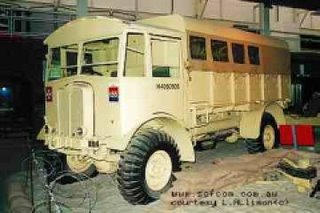 At the time I was in charge of convoys transporting truckloads of artillery ammunition from the main magazine in the Curragh Camp, co. Kildare, to Gormanstown Camp in county Meath about 35 miles from the Northern Ireland border. There were many ironies in this charade. My speciality was ‘field artillery’ and our most modern guns were 25-pounders from the Second World War and Brandt 120 mm mortars. The transport for moving the ammunition and weapons was unreliable as they were rusty old antiques covered in lots of green paint to keep the rust together and make them look good. The tyre paint hid the cracks in the rubber reasonably well; it’s amazing what make-up can do when it’s imaginatively and cleverly applied, paint is cheaper than new transport and make-up is cheaper than a face-lift.
At the time I was in charge of convoys transporting truckloads of artillery ammunition from the main magazine in the Curragh Camp, co. Kildare, to Gormanstown Camp in county Meath about 35 miles from the Northern Ireland border. There were many ironies in this charade. My speciality was ‘field artillery’ and our most modern guns were 25-pounders from the Second World War and Brandt 120 mm mortars. The transport for moving the ammunition and weapons was unreliable as they were rusty old antiques covered in lots of green paint to keep the rust together and make them look good. The tyre paint hid the cracks in the rubber reasonably well; it’s amazing what make-up can do when it’s imaginatively and cleverly applied, paint is cheaper than new transport and make-up is cheaper than a face-lift.Our heavy-duty artillery trucks for pulling low loaders were called ‘Matadors’ and had last seen service in the North African desert during those dark days, when it was full of foxes and desert rats.
The driver’s cab had been beautifully crafted in timber by a qualified master craftsman who had served his time. This work had been completed a long, long time ago by a carpenter called Joseph, who was a decent hardworking man and who worked all the hours – God sent him. He was not a ‘fly by night’, quick fix merchant grabbing the fast buck and doing a runner – this was not his style.
Himself and the missus, Mary, were expecting their first child at Christmas and they wanted to get enough money together in order to get a mortgage on a new house and move in before the festive season, so their new baby would have a proper home.
If you were a driver you didn’t need to join a ‘keep fit’ club, as the traction unit weighted about 9 tons and there was no power steering. I was unable to turn the steering wheel on the slow corners without standing up and even ‘Iron Mike’ would have difficulty engaging the clutch. These brutes were far from the days of power assisted steering and automatic gearboxes with tiptronic mode. They were built by men for men. Robots had no part in building these mean machines.Most of our transport would be lucky to cover half a dozen furlongs and get past the first few fences, never mind an MOT – model of trash. However we had large stocks of ammunition, but the poor Air Corps and Navy were destitute and were destined for the poor house.
Tuesday, September 19, 2006
Irish-British war (part 1)

In August 1969 there was a national call up due to problems in Northern Ireland as Nationalist refugees were heading across the border to the South. They were mainly from Belfast and Derry.
James “We shall not stand idly by” Prince was Prime Minister at the time. The man had never worn a uniform in his life – any uniform – a typical hurler on the ditch.
The Army had been starved of cash for decades and the defence budget was less than the budget for public toilets. We were at the bottom of the food chain and we now became instant heroes.
Thousands of reservists answered the call and many reserve officers came from the United States, Canada, Australia, New Zealand, United Kingdom and other countries. I suppose you could say that ‘ We shall not stand idly by’ was a declaration of war on Great Britain and we were expected to do the business and get it sorted. The officers who answered the call were First Line reserve, none of whom belonged to the FCA referred to privately by regular officers as the ‘Viet Cong’.
The majority had served during ‘The Emergency’ of 1939-1945 and would have been in their late 40s and early 50s. Many had reached exalted heights in civil life and were presidents, vice presidents and chairmen of huge companies in the United States, Canada and other countries.
I was a youthful 24-year-old lieutenant and was privileged to be with these high fliers with massive capabilities and great alertness and fitness. What amazed me most was their unbelievable enthusiasm, their dedication, their spirit, their nationalism and their loyalty to their country of birth, prepared to sacrifice everything they worked for – even their lives, leaving their families, wives and relatives behind in their newly adopted countries.
It was seriously impressive to see men like this answering the call. The same could be said for many of the soldiers and I remember police and prison officers coming to the main gate when I was duty officer. We couldn’t take them as they were essential services and there was enough chaos without having them absent from their work. They all shared the same ethos, the same focus and were visually impatient to get moving and get things done and dusted. They were waiting for the green light to cross the border and were often on my back wanting to know the score.
They were impressive in their diligence and their readiness to learn new military skills and procedures, using all their capabilities for the love of their country. I was over most of these men, some of whom had children older than me, and sons who were as successful as their fathers with their own families. It was a shame that the wily unprincipled politicians were playing games with them.
Monday, September 18, 2006
That’s my brother. Who? Sylvest...
 It’s October 1963 and I’ve changed clothes and places again. I’m now a regular officer cadet in the Military College, Curragh Camp, County Kildare.
It’s October 1963 and I’ve changed clothes and places again. I’m now a regular officer cadet in the Military College, Curragh Camp, County Kildare.It’s mid afternoon and I’m standing on the balcony of our living quarters with another cadet looking out across the square that is about half the size of a football pitch and is surrounded by 2-story red bricked buildings, which are used for living accommodation, lecture rooms and offices.
The next moment this fighter jet appears from nowhere, inverted - I mean upside down - and almost touching the chimney of the buildings on the right of the square, and diving towards the ground sucking the tarmacadam from the square, and accelerating flat out up into the sky, brushing the chimneys of the buildings on the left by inches on its departure. It’s awesome; it’s happened in split seconds, and is now rocketing towards space, the sound coming from behind. This is my brother Sylvester.
He’s in an old Vampire jet that’s fixed with cannabilised parts, taken from donor Vampires, which are well past their sell by date and should have been put to sleep a long time ago.
An experienced airline pilot and ex-fighter pilot went up with my brother Sylvester, riding shotgun. His name was Lenny Lenehan and he was big into heavy metal and rode a Norton Commando motorbike, which was the ‘Terminator’ of its time, and he held the land speed record for the journey from Dublin to Gormanstown Airbase, a distance of about 30 miles, which he covered in under 15 minutes. Lenny’s brothers, and he had lots of them, were into speed and two of them were rally drivers.
When they landed Lenny was green in the face and as sick as a parrot, when he wobbled out of the brother’s Vampire and threw up all over the place, destroying his clothes after his spin into space. He never rode with ‘The Brud’ again.
Friday, September 15, 2006
My horse was a disaster...

I didn’t have a lot to look forward to, as my horse was a disaster. The partnership was doomed from the start and there was no future for either of us. The poor animal was wooden and irresponsive, and despite my best efforts I was unable to communicate with him. He was hard work and always managed to do the opposite to what I wanted. He’d change stride unexpectedly and switch from a trot to a canter and back again without warning. I couldn’t make up my mind, whether he was stubborn or just plain thick, and every ride was a marathon, and life was a constant battle without results. He was a small, strongly built, ungainly animal, and may have been badly schooled by a previous rider without finesse or sensitivity with his hands, as his mouth was wooden and he didn’t respond to delicate commands to the bit. Despite his failings he managed to get both of us over some high fences and even managed combination jumps in his own awkward way.
Thursday, September 14, 2006
Elvis The Pelvis
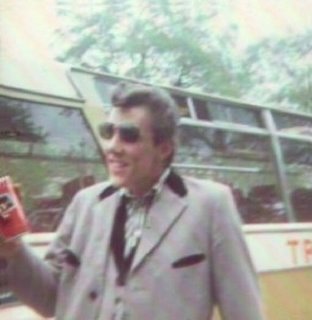 One sunny day in the People Gardens my brother Sylvester decided to live dangerously and filled a burst rubber football with water, and squirted it over a neighbour, who was sporting his flash suit.
One sunny day in the People Gardens my brother Sylvester decided to live dangerously and filled a burst rubber football with water, and squirted it over a neighbour, who was sporting his flash suit.His name was Christy Cullen and he was one of the few who worked in the area, unlike the wasters or ‘corner boys’, who used hold up the corners all day long doing nothing. ‘Christo’ liked to flash his cash and dress up to the nines on his day off, wearing his gold watch and lots of rings on his fingers.
He worked in the abattoir opposite the Cattle Market on the North Circular Road as a slaughter man and this was his day off.
He was immaculately dressed in a light blue suit with black velvet piping on the collar and matching black buttons, drain pipe trousers, frilly shirt and obligatory blue suede shoes.
He was a tough nut, a hard man and not one to mess with. He had a dark oily complexion with a determined protruding chin, and a hard look, and his jet-black hair was brylcreamed back with a big quiff on the front and a DA (‘ducks arse’) at the back.
He was an Elvis The Pelvis, Teddy Boy, and was not a bloke to tangle with, unless you had a death wish. I was not connected or involved in this outrage, I was only an observer but I can still see my small brother in the far off distance running like mad for his life, with Elvis going like the pelvis about 100 yards behind. Sylvester told me later that he had escaped by jumping over railings, and hiding in a forest until the enraged ‘Christo’ calmed down and eventually gave up the chase.
Tuesday, September 12, 2006
J.F.K

After about six weeks of service on the night of 22nd November 1963 a phone call came to the college from Washington DC. ‘The White House’ was on the line to say that President J F K had been assassinated in Dallas and that Jackie Kennedy had expressed a wish that the cadets attend her husband’s funeral and provide a guard of honour. It was Saturday night and the senior cadets were to fly to the States the next morning. We were up half the night helping the senior cadets get ready for this momentous occasion. We polished their buttons and got their kit ready as they were practicing their drills outside in the dark.
Our training was bilingual, in Irish and English, and ‘Present arms’ was the order for the salute on an occasion like this, ‘Tharraige airm’ in Irish.
It was a huge shock for everyone and the cadets were hugely honoured to be invited to this funeral.
We saw the senior cadets leave on the Sunday morning.
Sunday, September 10, 2006
Lieutenant O’Brien
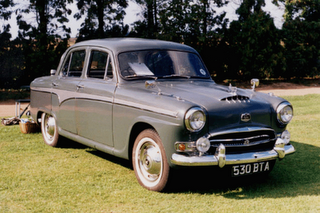 Another officer, lieutenant O’Brien, was tall, good looking, well built and smoked a pipe. He was in his late 30s and had a reflective, deep look, like he was trying to find the answer to something like “Why am I such a prick?”
Another officer, lieutenant O’Brien, was tall, good looking, well built and smoked a pipe. He was in his late 30s and had a reflective, deep look, like he was trying to find the answer to something like “Why am I such a prick?”He dressed immaculate and always wore his pigskin gloves, hail, rain or shine, and treated his subordinates with arrogance and distain. He gave the impression that he shouldn’t be among this riff-raff, that nothing or nobody was good enough for him, and they should throw themselves on the ground when he arrived.
He drove a two tone Austin Princess Vanden Plas with leather seats, wood veneer and all the extras. This was a special edition signed personally by The Queen herself.
He was a Prince and was doing us – peasants – a favour with his very presence, and was probably wondering why the hell he was here. He had an air of distain and sometimes gave the impression that the oxygen wasn’t good enough for him, and he spoke in a slow modulated voice with a measured response, like he was dealing with the finer points of Einstein’s Theory of Relativity and hoping to throw new light on the subject.
Saturday, September 09, 2006
The Captain & his car
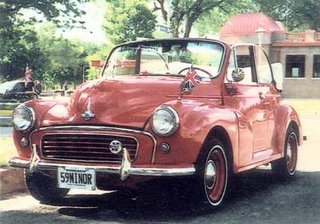
The other Captain was a fruitcake; he was definitely off the wall. O’Sullivan was a good looking, debonair, charming cavalry captain with style and panache, and had a large family of beautiful children, all shapes and sizes with beautiful posh names. The children were classy and spoke beautifully, and looked after each other, as the Captain was never available. He had a wreck of a Morris car outside the house, with a torn and tatty canvas roof on it. He spent all of his time lying under the car, taking it to pieces and rarely going into the house. He even lay under it at nights using a lamp and one day his eldest son came out, and started to play with the steering wheel and the switches. The Captain came out of the house and said in a loud voice: “Morgan, take your hands off the controls”.
On very rare occasions he’d get the car started, and the whole family – including the wife – would climb on board and head off into the sunset … but not for very long. They normally had the roof down, and O’Sullivan was dressed like a World War I fighter pilot in a flying jacket with a big fur collar, and a Biggles type helmet with goggles, and wearing a pair of long brown gauntlets on his hands.
About half an hour later the car would appear around the corner, with the whole family – including the big wife – pushing it, sometimes with assistance from some of the more charitable neighbours, and the Captain sitting majestically at the controls of the machine with a puzzled expression on his distinguished face. I don’t believe it ever completed a journey.
Thursday, September 07, 2006
Wednesday, September 06, 2006
Edgeware (2)
I look at the alley opposite to me and see the remnants of last night’s madness, where people have been ill, and notice an empty green bottle of gin lying on the ground. I head for Tottenham Court Road underground and step on the escalator. I notice that the one heading up on the opposite side is full of Vietnamese, and I’m not quiet sure where I am. For a moment I feel I’m getting flash backs, and decide to clear my head, and escape from the tube, and land on Hyde Park Corner.
A bearded man from Rubicstan is eating an ice cream relishing it like it’s his last meal. After he finishes he keeps licking his lips and looks sad, as he can no longer feed his addiction, and dejectly walks away, carrying his bits and pieces with him in six yellow Selfridges’s bags.
I feel afraid, disassociated, disconnected; everything has disappeared and doesn’t exist any more or maybe it never existed. I’m not quite sure, I was confused, and thought I was losing my sanity and escaped into my own world.
Tuesday, September 05, 2006
Edgeware

In April 2001 I went back to Edgeware in order to recall some of the memories of my youth and maybe relive some events of the time.
When I came out of the station I didn’t recognize anything and thought I was somewhere else. I went back to the tube station to make sure I was in the right place.
“Yes. I was at Edgeware, London underground station, at the end of the Northern Line; the black one, just after ‘Burnt Oak’, but it’s not the same place”.
I walked to where the ‘White Lion Pub’ had been, and everything I’d know and seen had disappeared. I felt alien, alone and isolated. Everything I knew was gone, and I was in the past. I didn’t belong, and maybe I should be somewhere else. Even my memories had been taken from me; I have been robbed and have nothing left.
It was a different world; I couldn’t identify anything or anyone. There were people from Kakistan, Turkistan, Ubekistan, Nagistan, Orangoutang, people from countries with no names, and countries that haven’t been discovered yet, and maybe countries that don’t even exist. This was not the world I had known.
I catch a tube and head for Victoria Station hoping that I’ll fine some normality.
I’m in Victoria Station and I’m surrounded by hundreds of blind people without white sticks crashing into me. Some are towing multi-wheeled trolleys loaded with luggage and are travelling at speed in different directions. No one seems to have the right of way, and I’m expecting a major pile up at any moment, and – after being involved in several collisions – I decide to hop on the number 38 bus, as I no longer feel safe.
It’s an old Routemaster from 1966, with seats designed for Twiggies, and she’s still plying her trade on the streets of London – despite qualifying for Incapacity Benefit, refusing to lie down and die – and she comes complete with a real live Oriental conductor with lots of charm.
He looks like a karate expert and a twin of the character, who made Inspector Clossaue’s life a misery. I’m desperately trying to find a space on the upper deck, and just hope he doesn’t charge at me and throw me over his head, and down the stairs, with a parting karate chop.
We travel through Westminster, which is teeming with tourists in cheap, gaudy clothes, fat and ugly, with cameras suspended from their body parts – they could save time and buy postcards, but I suppose gawking is in their nature, and they haven’t yet found a life. They go to the shows, but see nothing but bricks and mortar. They don’t feel the building.
There are crowds in the other side of the street walking towards me, looking confused, afraid and disconnected, lost in their problems. People whose dreams have left them, and their reason for living have deserted them. They seem to be struggling in the mud and the sand, and don’t know where they're going or why.
Suddenly a tall, athletic African in roller skates overtakes our number 38 and races down our bus lane, with a London bus in front of him and one behind. Jesus, lets hope he has M.O.T.
(to be continued)
Monday, September 04, 2006
Streets of London
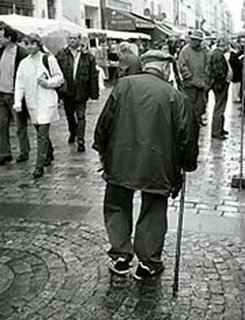 It was mid January and I had very little money, and stayed in a filthy house somewhere off Fulham Palace Road sharing a room with a one armed man. The blankets were crawling with things and I was happy to leave the next day.
It was mid January and I had very little money, and stayed in a filthy house somewhere off Fulham Palace Road sharing a room with a one armed man. The blankets were crawling with things and I was happy to leave the next day.Eventually I ended up on the streets and was ejected from Charing Cross Station by the police, but returned when they left. I was starving and used Irish coins and religious medals to get chocolate bars from the machine, and eventually succeeded in fooling them.
At about 4.00 in the morning I went to Euston Station and decided to treat myself to a cup of tea and a sandwich in the little ‘Rail Bar’ with the big glass window, so I could see what was happening outside. I ordered a cup of tea and a sandwich, even though I could have eaten the bar and looked out the window, and saw the police patrolling the station and waking people, who had fallen asleep, and ejecting them from the station, if they had no travel tickets. Most of them would return when the police left, as it was bitterly cold outside.
When I turned around to eat my sandwich it was gone as in disappeared, I don’t believe in magic and I remember getting it. I looked to my left and saw this very small, thin, old man with a black beard wearing a big long overcoat and noticed that my friend was trying to get rid of the evidence. He was munching furiously, and the crumbs were falling out of his mouth, and he looked guilty, and was frightened and afraid.
I pretended I didn’t notice and knew that he needed it a lot more than me. I just wished I had the money to buy him a decent meal.
At this time a famous book had just been published 'Bury me in my boots' by Sally Trench about the homeless in London and Ralph McTell’s record was in the charts around this time:
How can you tell me you’re lonely
And say, for you, that the sun don’t shine
Let me take you by the hand and lead you through the streets of London
I’ll show you something to make you change your mind.
Have you seen the old man outside the seaman’s mission
Memory fading like the ribbons that he wears
In our winter city, the rain cries a little pity
For one more forgotten hero in a world that doesn’t care.*
* Streets of London – Ralph McTell; written by R. McTell
Sunday, September 03, 2006
Some entertainment
"Craic Wisely wins the 1st ever Celtic Battle of the Bands Finale with an energetic 40 minute set on Saturday, July 22, 2006 on the E-Park Stage at the Ionia Free Fair! This Grand Rapids MI, USA based Celtic Rock Group won the support of faithful and newly converted "Craic Heads," (as their fans are known!)Young and old got out of their chairs and cheered for Craic Wisely and approved the judge's unanimous decision to award the trophy to this fantastic Celtic Rock Band! To find out more about this great group, visit www.craicwisely.com or link to them from www.lynchslair.com music and entertainment page!" /LiamLeprechaun/
Below: Liam Leprechaun's video
Saturday, September 02, 2006
The Brigadier
Bill was a good-looking man with a reddish, purple face, well built and was always meticulously dressed. The uniform looked like it had grown on him. He had a gruff manly manner and looked and acted the part. He had charisma in spades, and was a magnetic personality, and knew how to run the show. I liked him, as he was a real gentleman, very human and earthy, and much more sensitive than some would think - he’d always acknowledge your presence no matter how low or unimportant you were in the social order. He was a big man.
During this charade the Brigadier was accompanied by a large entourage of various ranks of officers and NCOs who trotted after him, as he swaggered through the camp. It was unlike many other inspections, as there was no sense of fear, and his subordinates were relaxed and happy, and enjoying the occasion of his presence. He was the main man.
He rushed his inspection, while his officers took notes of the various problems and changes needed, and kept to the motto of the cavalry ‘First in, last out’ or translated into Bill’s language ‘First into the bar and last out’.
After the inspection a brigade meeting was held with Bill’s announcement to his cavalry: ‘Jesus, I could murder for a drink’ and they’d all troop off to the bar in the officers mess looking forward to a good evening’s entertainment.
The Brigadier would take centre stage, holding forth on many subjects and telling humorous jokes and stories of times past, and present with his officers listening attentively to every word, and laughing loudly at his jokes. He was a great entertainer and was in his element, as he sipped his malt whisky.
Late evening the meeting would break up and Bill would depart in his staff car and head back home to Dublin.
Friday, September 01, 2006
Private ‘Rip-it-up-Rip’
“Rip it up Rip! Rip it up!”
He was musically talented and would put one hand over his heart and the other hand in the air singing with gusto:
Take these chains from my heart and set me free
You’ve grown cold and no longer care for me
All my faith in you is gone but the heartaches linger on
Take these chains from my heart and set me free[1]
Rip was a nice harmless man and probably couldn’t get a girlfriend, as he was no oil painting and wasn’t exactly at the top of his profession, in other words ‘he wasn’t a very good catch’. The Army probably kept him because he’d have nowhere else to go and no one to look after him, and would end up on the streets. Rip was always friendly and smiling and was as Happy as Larry as he wandered and sometimes staggered around the camp, even on wet miserable days singing his song.
/…/ During the summer the Brigade Commander would make an official visit to the Camp. Before his arrival everything was polished and white washed, and all the embarrassments were swept under the carpet including ‘Rip it up Rip’ and his kin who were sent on an enforced holiday.
[1] Take These Chains From My Heart - Hank Williams /Ray Charles; written by Hy Health and Fred Rose
Thursday, August 31, 2006
Sergeant Major

Sergeant Major. He could be heard ten miles away when he roared. He must have watched a lot of B movie war films in order to get to this level of professionalism.
He was a panic – he was spic and span, neat as a pin, small and tidy and strutted around the square like a peacock, carrying a long stick under his arm, which was parallel to the ground – as in very parallel. The square was his property and he looked like had been born there.
In his mind he was the next best thing to Napoleon Bonaparte without the long great coat and the funny hat.
This was his tour-de-force, his moment of glory, his reason for living, his entrée; it was everything he ever dreamt about. He’d blind you with the shine, the panache, the presence, the perfection. He had turned his role into a flawless work of art and spent his two weeks strutting around on his stage, feeding his Ego and overawing his captive audience. He was getting his rocks off and was hilarious. He was on a permanent high.
During the year most of us would attend parades, events, training and exercises, which we didn’t get paid for, but the Peacock only appeared on rare occasions, when there was a large audience of senior people and dignitaries who would admire his prowess and feed his eternal Ego. He was an early 1960s junkie, freaking out on the buzz and needing a large audience for his trip.
I’m not sure what he did outside of his FCA life. He could have delivered milk and if he did I’m sure he would have been faster than ‘Ernie, the fastest milk cart in the West’. He was aloof and was rarely seen in other parts of the barracks, unlike the other NCOs and some of the officers. A sergeant major is the most senior non-commissioned officer in an army and is held in very high esteem. They are the kings of the parade ground. Our sergeant major, unlike us, wasn’t breathing in ordinary air but high-octane oxygen, and only made his appearances on the square where the great unwashed would genuflect when we were close to his almighty presence.
Wednesday, August 30, 2006
Macker (part 2)
“How yeh? I’m Macker and I’m with the Second Battalion”
“Do you want a smoke?”
“Yeh. O.K. Thanks.”
He puts the cigarette in his mouth and draws on it for almost five seconds, holding the smoke in, and then expelling it slowly in controlled puffs.
Jesus, I’m impressed. He looks like a man who was born with a cigarette in his mouth and certainly knows his business.
Macker:
“Where are you headin’?”
“I’m going to Kilkenny Barracks on a two-week camp”
“I’ve never been there. I’m from Ballyfermot”
At this time Ballyfermot , known as Ballyer, was the Gaza strip of Dublin – they don’t send police cars in, they send in the tanks.
Macker was in his twenties, 5’9’’ in height, stocky as in built like a brick, and bullet proof. His uniform was different to mine. He wore a peaked cap and a thick ox blood leather belt with a brass buckle, and matching boots, and had a yellow and red ‘Eastern Command’ flash on his left shoulder, which was similar to mine, as I was in the same Command.
Macker said:
“I’ve just came back from the Belgian Congo” – in his deep rough gravely voice, taking an even deeper puff on his cigarette. I’m thinking if he takes another puff like that the cigarette will disappear, and there’ll be nothing left. I’m overawed; this is a huge honour to be in the company of a real regular soldier, just back from action in Africa. He’s a rough tough diamond, and I can’t understand why he’s bothering to talk with me.
Macker takes a final puff from the almost non-existent cigarette, and I can see this is a practiced art, and he then slowly expels the smoke again:
“I was with the 33rd Battalion and nine of me mates were killed by the fucking Balubas”
His uniform fits him like a glove, and his brass buttons glisten in the light coming through the windows of the station.
Macker was starting to warm to the subject:
“They chopped them up with machetes. I’m fucking serious. It was no joke”
Macker was no diplomat, niceties were not his trademarks. He came from a family of 12 children of which 8 survived. He was the cream of the crop, and came from one of the toughest areas in Dublin, where the law of the jungle prevails. Macker was born fighting.
“Then the fucking bastards ate them, I’m serious”
Macker was probably in uniform, because he would be entitled to free public transport. He withdrew his own cigarettes from his packet:
“Here, have a smoke”
“Thanks”
I took the cigarette and he gave me a light
“Thanks”
“They put them in pots and ate them. The coffins that were sent home were fucking empty. There was nothing left of them except bones”
At this moment Macker was my hero. He came from Ballyer and had made something of himself. He was a fully trained soldier with a chance of promotion to corporal and possibly to sergeant. He had been in a part of the world that most people only dream about. His life was real; he had fought Baluba tribesmen in the bush. The name of the game was respect, and in any language he was a hero. He had experienced the climate, the smell, the feeling of a different planet, a different theatre, wearing at that time a heavy bulls wool uniform in the tropics. He was a roughie – a toughie – a braveheart.
Macker takes another draw on the cigarette and said:
“We went out looking for them. We searched the fucking jungle and we found the Balubas.”
He exuded an aura of strength, of both mental and physical endurance. He was a professional fighter and was proud of what he was. Macker had street cred; he had respect, and was probably the only one on his street who had travelled outside of Dublin. His grandfather had been a ‘Dublin Fusilier’. Macker was master of his trade; his business was getting the job done.
Macker said:
“We got some of the bastards and we finished them off with fucking bayonets.” - as he stamped on his cigarette butt.
“We had to even the score” – and with that he took some photos from his pocket, photos of bodies, lying in different positions in the jungle of Africa.
.The departure of the Kilkenny train was announced, and I collected my baggage and prepared to leave, and Macker said
“Enjoy your camp. I might see you in Dublin sometime”.
“Good-bye Macker. I hope everything works out and I hope to see you again. All the best”.
Tuesday, August 29, 2006
Macker (part 1)
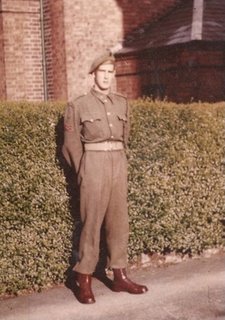 It’s 3 PM in the afternoon of July 1961, and I’ve left home for the first time in my life to travel to a military barracks in Kilkenny on my first ever summer camp for two whole weeks of training.
It’s 3 PM in the afternoon of July 1961, and I’ve left home for the first time in my life to travel to a military barracks in Kilkenny on my first ever summer camp for two whole weeks of training.A few months earlier – just after my 15th birthday – I had joined the FCA (Forsa Cosanta Aitiuil in Irish) what means ‘Local Defence Force’, which is a part time army. I’ve to catch a train at Kingsbridge Station, Dublin, in order to travel to Kilkenny city and at last the station is in sight.
I’ve had to walk the last tree quarters of a mile, as CIE - Coras Iompair Eireann, Irish Transport Company – are either on another go slow or are ‘not at home today’. CIE, Costly Ineffective Excuse, was a hierarchical, arrogant company with badly paid staff who only worked between strikes.
I’m weighed down like a bloody camel, carrying a heavy suitcase and close to death. This camel could do with a mind-
altering drink before he collapses with exhaustion on the last f
few furlongs. My massive, heavy, wool great coat is almost sweeping the ground, and I’m carrying a heavy knapsack on my back with my murderous webbing equipment wrapped around my body, attempting to strangle me. This gear was designed for a bad winter in Stalingrad.
My shirt is an old style grey back, a hand me down from the Great War when men were men and women were women. It’s made of sandpaper and the collar is made from ‘Gillette’ razor blades. In case your interested I have a steel helmet hanging from my neck, making a determined effort to choke me, and my face is turning purple, as I gasp for breath.
My feet are weighed down with what feels like a pair of ship’s anchors and I’m lifting, no – I’m transporting – these highly polished, ox-blood boots with a full platoon strength of studs on the soles, sixteen on each, with four metal horseshoes adding to the weight. These boots were never made for walking; they were made for walking all over the enemy.
I’m sliding and skidding along the footpath, getting uncontrollable under steer and over steer on both feet at the same time – even Fangio couldn’t handle these. At last I’ve arrived and collapse on a bench and wait for my train.
(to be continued)
Saturday, August 26, 2006
CV of an anorak
Place of birth: Bognor Regis
Life ambition: Little John wanted to write as a baby and use crawl around the sand writing with his left foot until it ached, and then he would use his fingers. When he got home he would write on his little blackboard with his chalk. His mummy was overjoyed and determined that her Little John would be the best writer in the world.
Schooling: As he got older he had dictionaries for breakfast, dinner and tea, and never went out. He didn't play with other children as they were nasty and noisy, and in school he was the best boy in the class and was the teacher's pet. She adored him and he adored her, but the other stupid children hated him, as he was the favourite and was always grassing them up.
Employment: Little John was now a Big John and got the job of his dreams working in the local library, where he excelled. It was Heaven. He read everything from wall to wall and often stayed overnight sleeping on the shelves.
He read every road sign on his way to work, and sent his CV to the local Council for help with his unlimited talent. They were stunned and knew they had found a prize. They pulled out all the plugs and showered him with grants, training schemes and a choice of the best universities in the land. The Samaritans and other charitable institutions rushed to his aid, wanting to and become part of this future legend.
The book: Big John wrote a minimum 20,000 words a night until one evening he collapsed and fell off the stool, banging his head on the floor. After the accident he got better and better, and was hitting 50,000 words per night. At last he reached his goal and the Council got him a deranged publisher.
Title of book: 'The Story of Little John in the Sand' by Big John Anorak
When he saw his work on display in the local shop he trembled and shook with emotion - unaware that he was having his first orgasm - and decided to start book two immediately.
Fifteen minutes later he was hit by a school bus, when he was writing furiously while crossing the road, as he forgot to read the stop sign on the traffic light. Mercifully he went to his grave unaware that his books remained in the stores and were eventually offered free with every bottle of coca cola.
Friday, August 25, 2006
My mother & the church
My Sundays consisted of going to church and making an escape at sometime during the service, followed by a three hour tour of Glasnevin Cemetery - the largest graveyard in Dublin - which was madly exciting looking at the class system in death with very large headstones for important people and small and cheap for the less well-off, and topping off the day’s entertainment with an evening visit to the same church for the forty hour ceremony.
This was the icing on the cake and my mother in all her glory, would grab the attention of the packed church, singing the loudest in her trained soprano voice, or at least that’s what she told us, and drowning out the opposition – being her usual self. She had a powerful presence and charisma, and was very good looking, and considered herself to be the best of the best, the best singer, the best actress, the best tennis player, the best everything and to cap it all ‘The Mother of all Mothers’. No one else came close. The rest of us weren’t quite sure about this, as we’d no experience of another mother, and my father tried to hide in order to avoid this unwelcome attention, as the rows of people in front of us turned around to see who was making all the noise.
The evenings comedy seemed a lot longer than forty hours with this actress hitting the highest notes and cracking the plaster work on the ceiling leaving Maria Callas and Pavarotti and the rest of them for dead.
Look what they done to my song, Ma
Look what they done to my song.
Well it’s the only thing
That I could do half right
And it’s turning out all wrong, Ma
Look what they done to my song...*
This was my Sunday torture and I spent lots of time working out ways to escape from this nightmare, and got my own back by going into the church, when it was empty, and standing up on the pulpit, and saying nasty and horrible things to God and the Pope using foul language. I also joined the Legion of Mary voluntary in order to sell religious newspapers outside the church, and kept a large percentage of the takings, in order to enrich my lifestyle and fund my hobbies and habits. ©
*What Have They Done To My Song, Ma - Melanie Safka
for cortez_i_pizarro from Gazeta Wyborcza
Wednesday, August 23, 2006
Letter to the Kremlin
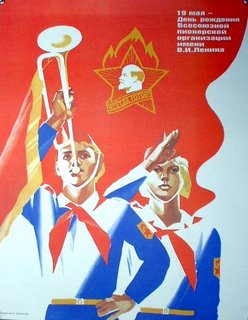 I graduated from Hopeless Street in 1954, when I was nine years old, and started in O’Connell School (O.C.S.). It consisted of a primary and secondary school catering for 9 to 18 year olds. It was situated at the other end of the North Circular Road about 3 miles away. It was run by a branch of the Waffen SS, and the School Principal was an SS Obergruppenfuehrer from the 1st SS-Panzer-Division Leibstandarte 'Adolf Hitler'. It was very right wing and tended to produce pupils that were either on the far right or the far left. A breeding ground for extremists and fundamentalists. I didn’t take it seriously and it made me anti Irish and anti Catholic at that time.
I graduated from Hopeless Street in 1954, when I was nine years old, and started in O’Connell School (O.C.S.). It consisted of a primary and secondary school catering for 9 to 18 year olds. It was situated at the other end of the North Circular Road about 3 miles away. It was run by a branch of the Waffen SS, and the School Principal was an SS Obergruppenfuehrer from the 1st SS-Panzer-Division Leibstandarte 'Adolf Hitler'. It was very right wing and tended to produce pupils that were either on the far right or the far left. A breeding ground for extremists and fundamentalists. I didn’t take it seriously and it made me anti Irish and anti Catholic at that time.By the age of eight I had stopped going to church and had written to Moscow, expressing an interest in their system. They replied to my letter and sent me two books, one of which was The USSR today, which gave comprehensive geographical detail as well as information on over forty ethnic groups who populated the vast area, which covers twelve time zones. The sheer scale of the area and the temperature spans, especially in parts of Siberia, where the difference between the coldest and hottest temperatures can sometimes exceeds 100 Celsius degrees.
The second book had a red cover with a photo of Lenin. There were many pictures of the Soviet life style, portraying the advantages of communism. I wasn’t impressed, as it appeared to be a rather grey place with too much sameness and uniformity. The lack of a class system made it seem dull and drab – with no sparkle, no spontaneity, no sense of fun, and no magic. The conformity of the grey buildings in the different cities looked depressingly dead.
It didn’t light up my world and I decided to pass on this one.
My father went ballistic, as he was ferociously opposed to Stalin and didn’t want any literature on him. He had been born before the Russian revolution and Stalin and Hitler were not his icons. It didn’t bother my mother, as she was focused on her own world and had no interest in events outside of her domain.©
My first memory of music
We'll meet again, don't know where, don't know when
But I'm sure we'll meet again some sunny day… *
I was on Parkgate Street in Dublin with my parents, when a big Ford V8 military truck passed along the street, filled with soldiers in steel helmets and holding rifles. I thought they were coming back home from a war. There were about 30 of them singing ‘We’ll meet again’ in harmony and I was captivated. They sang like a choir with strong voices and took the attention of the street.
It was 1949 and I was a 4-year-old toddler, less than 2 feet tall, in this new big exciting world for the first time, and I didn’t know why I was here or what was happening, but it looked very dramatic and interesting to me.
I had been born just up the street at the top of the North Circular Road, beside the Phoenix Park in Dublin, when Hitler was hiding in his bunker. Before I was born one of his Luftwaffe pilots flew over my city by mistake and blew half of the North Strand away, situated at the other end of the North Circular, where I later went to school. Apparently he couldn’t find England.
The Park became my playground, my Disneyland, all of its 1,760 acres, enclosed by seven miles of granite wall to make it nice and cosy and private. I now owned one of the biggest play stations in the world.
It was my fantasyland, where I could become many different people and act out many different roles. There was lots of space to explore my different thoughts, fantasies and humours, any entertainment you wish on demand without ever pressing a button. This was my first theatre, my first stage, my first cinema and the beginning of my first picture show.
It was the start of my escape into dreams, unlimited dreams, where I could create many different worlds and change them at will – and replace the actors whenever I wished. It was so easy, so convenient – it was a walk in the park.
I wake up and then close my eyes again, and escape into sleep, into my own dreamy magic worlds and dream whatever I wish and do what I wish.
In my area we had ‘Johnny Forty Coats’ who wore lots of clothes and slept rough; ‘Bang Bang’ who jumped on the buses and pointed his finger at the passengers and said “Bang - bang”. And poor old ‘Hairy Dan’, who slept in Billy King’s field off the North Circular known as ‘The Norrier’. He was reputed to have come from a respectable family and had trained as a doctor, and then cracked up.
We often shouted “Forty coats” at ‘Johnny Forty Coats’, as he cycled past on his antique bicycle laden down with his belongings. He was a big, strong, wiry bastard, mad as a toenail, with a determined dangerous look, and would jump off his bike, and park it against a lamp post or a wall, and give us a vigorous chase.
Despite all his coats, which he even wore in the summer, he could run fast, but luckily he never managed to catch us.
The area around the Park was a military area with a hospital, two barracks, Army HQ and Intelligence HQ close together and linked by tunnels.
There were many soldiers in the area and sometimes, when they cycled past, my brother Sylvester would shout after them:
“Ireland’s only hope, England’s only fear”.
Some of them didn’t take kindly to this remark and would stop their bike, and wave their fist shouting
“I’ll break your neck you bastard. You’ll be sorry. I swear!”
One day a big, strong, redheaded trooper with a fiery temper jumped off his racing bike and gave a long and determined chase in his hob-nailed boots. The brother and myself ran for our lives and escaped yet again, as we had a head start and knew the area inside out. ©
Tuesday, August 22, 2006
The Apple in the Garden of Eden.

In 1949 I attended my first educational establishment. It was called Stanhope Street Convent, which I christened Hopeless St. When I was in first babies, at the heady age of four, I took a bite out of the teacher’s apple, when she was out of the room. The teacher’s name was Miss (‘Missed the Boat’) Lowry and the apple had been presented to here by the class pet Martin. He was Mr. Perfect and was probably the only one who had ever given ‘Missed the Boat’ anything in her empty life, and I had violated her gift.
It turned into a major incident and there was a top-level investigation. I had walked up to the top of the class and taken a bite of her apple, and went back to my place. I was ‘grassed up’ by a class of four year olds and was now public enemy number one. Little did I know at the time that this had happened before? The perpetrators were Adam and Eve and the foul deed happened somewhere in the Garden of Eden. Look what happened to them and the problems it caused for the rest of us.
My sister Maria was a student in the senior school and she was interrogated, and was very upset about the incident, as her squeaky clean reputation had been tarnished due to her unfortunate connection with me. She was the sort that wasn’t noticed and had always kept a low profile until that fateful day. She was now connected to the Omen. ©
The Slopman
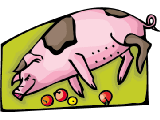
We had an unusual visitor to our street a few times a week. None of the neighbours knew his name, but everyone called him the Slopman, as he’d collect slop for his pigs from the residents.
He was a big muscular man and rode a small bicycle with his slop bucket hanging from the handlebars. He always wore a blueish-grey shop coat and black Wellington boots. Because of his size his knees would almost stick out at right angles to the bike. He had oily, black hair and a big, manly face, which was red and purple in colour.
Mister Slopman constantly swore and cursed, as he cycled along. His cursing curses are unprintable, but it was an education in bad language for any six year old. When he’d arrive on the street the mothers used run out of their houses and collect their siblings and take them home, so they could not be contaminated by the foul language that was spilling out of his mouth. It seemed to me that he was fighting with himself for some unknown reason, or maybe he got angry and agitated when he visited our street, because many of the families had no waste food to give him. ©
Neighbours on the North Circular Road
***
It's true that Dublin changin' since the Pillar was blown down
By the winds of violence that are buggerin' up the town
We used to solve our differences with a diggin' match and a jar
But now they're all playin Bang Bang, they're goin' to bleedin'
***
The Dorans lived next door to the Lyons. They had 14 children and Mr Doran was a bus conductor. He was a busy man and we used to refer to Mrs Doran as the woman ‘who lived in a shoe’. Ironically their eldest son Stan was a ‘died in the wool’ member of the official IRA. My parents used to talk about him and they said it was very sad. He had been in the ‘Fianna Boy Scouts’ as a child and had been brain washed. He was a real gentleman, well mannered and polite and would always salute my parents. They said he never went to school, but he was very bright and he probably met the scholars coming out. Stan was a serious looking man, committed, dedicated, determined. An idealistic type – a man with a mission.
In the mid 1950’s after a raid on Omagh Barracks in Northern Ireland he was arrested with the legendary Sean South of Garryowen, which became a famous ballad later. *
Their normal ‘party piece’ was blowing up monuments of British admirals and generals and the biggest one was Nelson Pillar in the centre of Dublin. This happened in March 1966 and the pillar was about 40 metres high. It was a shame, as it was part of my Dublin, and besides you can’t bury your history by blowing it up.
Doran’s court case was on the front page of the evening paper and he had made a speech from the dock:“I refuse to recognise this Court, which was set up by a British Act of Parliament…”. My parents couldn’t believe that he could make such a speech considering he had little schooling. He was interned in the Curragh Camp, County Kildare, and when he was released he joined a Monastery as a Brother. My mother said it was the only way he could escape from the IRA, as the only other option was a wooden box. ©
